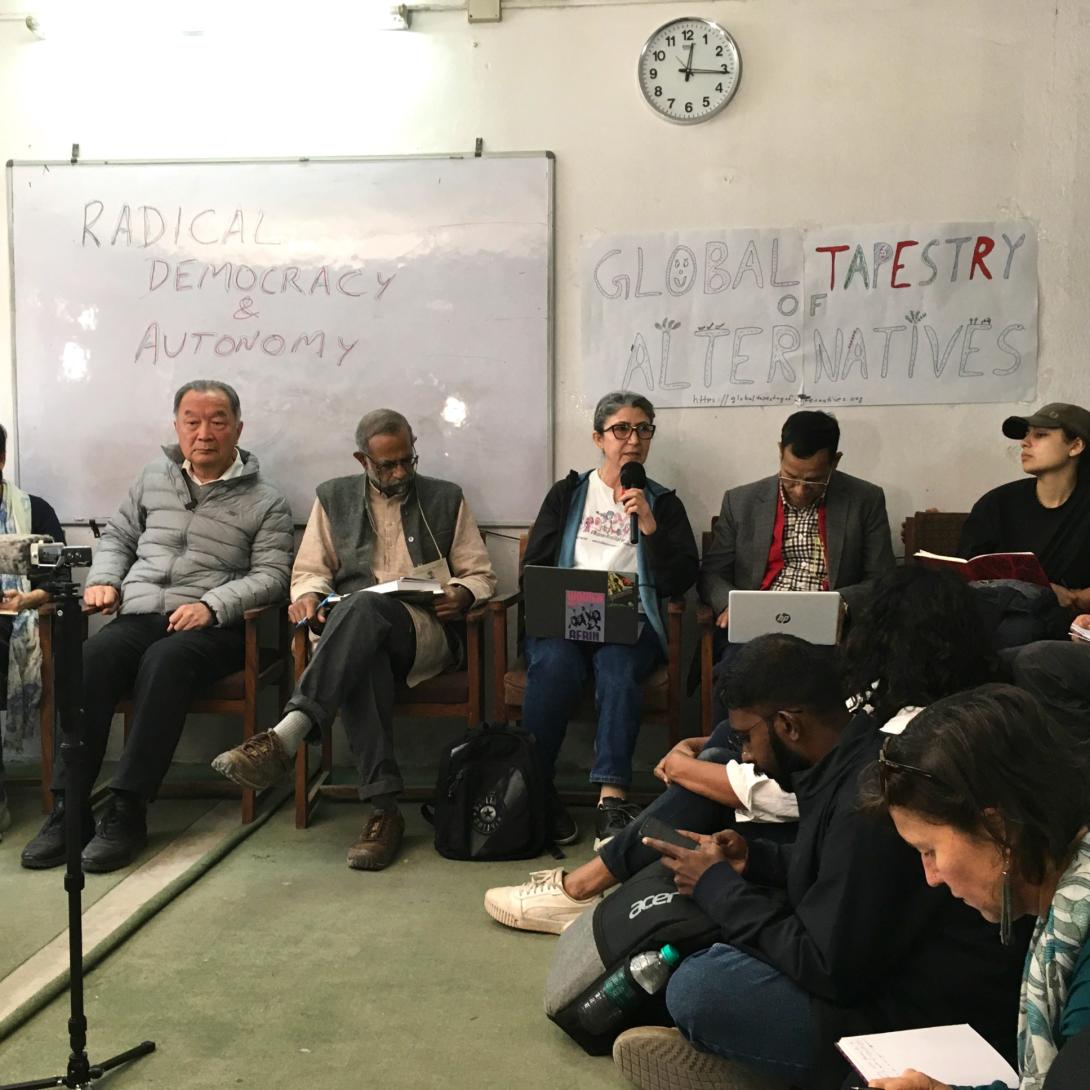
Here is a small window on a big event: a tent city in Bhrikuti Mandap park (a dozen 300-seater striped tents with PA systems, named for Himalayan mountains, and small kiosks for individual organisations) complete with street food and big yellow street-wild dogs; across a road streaming with mopeds, rooms in two faculties of the university (law, social work); and adjacent, the formal meeting hall and shady lobby of the Nepal Tourism Board. In an open-space event on this scale it’s easy to miss things - especially if sessions are relocated mid-programme, and WhatsApp isn’t available for whatever reason on your cellphone. So I offer here whatever sense arose from half a dozen or so sessions, and apologise for failing to pick up whatever other threads were in the wind in Kathmandu for three days at the end of February.
Some general reportage of WSF 2024 in IPS News is linked here.
WSF is an open space where civil society movements worldwide can open windows on to each other’s practice, to talk, listen and learn, and to develop insights and intuitions leading to cross-region, cross-movement solidarity and perhaps collaboration or coordination on strategies or actions. Here’s the WSF2024 website, here’s a summary of its thirteen themes, and here’s the final schedule of sessions. Digital literacy, and mobile capacity, certainly were at stake in this gathering; and I have to admit, as a Global Northerner, I was lacking in both departments.
Since WSF is essentially a political and values-based rather than an economic frame, manifestly ‘economic’ sessions in WSF convergences are in a minority. In any case, actions (as distinct from perceptions, say) typically will be developed in some other institutional context like, for example, La Via Campesina, which advocates for family farm-based sustainable agriculture, and which coined the term "food sovereignty". The WSF2024 themes that have an economic reference manifestly on the surface are:
- 1 Economic Inequality/Economic Justice;
- 5 Land, Agriculture, Food Sovereignty. Agro-Ecology, Energy, Natural Resources; and
- 11 Climate Justice, Ecology, Just Transitions, Habitat, and Sustainable Development. In addition, economic references are a little more indirect in
- 2 which includes Labour and Migration; and
- 3 which includes Discrimination Based on Work and Descent (DWD).
Manifest necessity for radical practice, in a Global-South gathering
The big thing I brought home in my head and heart was the massive up-frontness of peasant (rural) life and survival, and marginality more broadly (for example, for low-caste peoples and for migrants). The huge majority of participants in this WSF were from the global South (specifically the Indian subcontinent) and ‘the other end’ of dynamics was powerfully present there, in contrast to what routinely presents itself in the global North. But in the same breath, I registered the powerful energy of peasant and low-caste movements, and a rationale - or rather, a manifest necessity - for radical action, which is not necessarily found easily by civil society movements in the North (or even, available?). While many realities of existence as presented in WSF sessions are both vile and violent, the sense of counterforce and commitment was inspirational. We do have to look to the South for pivotal learning and maybe pivotal events?
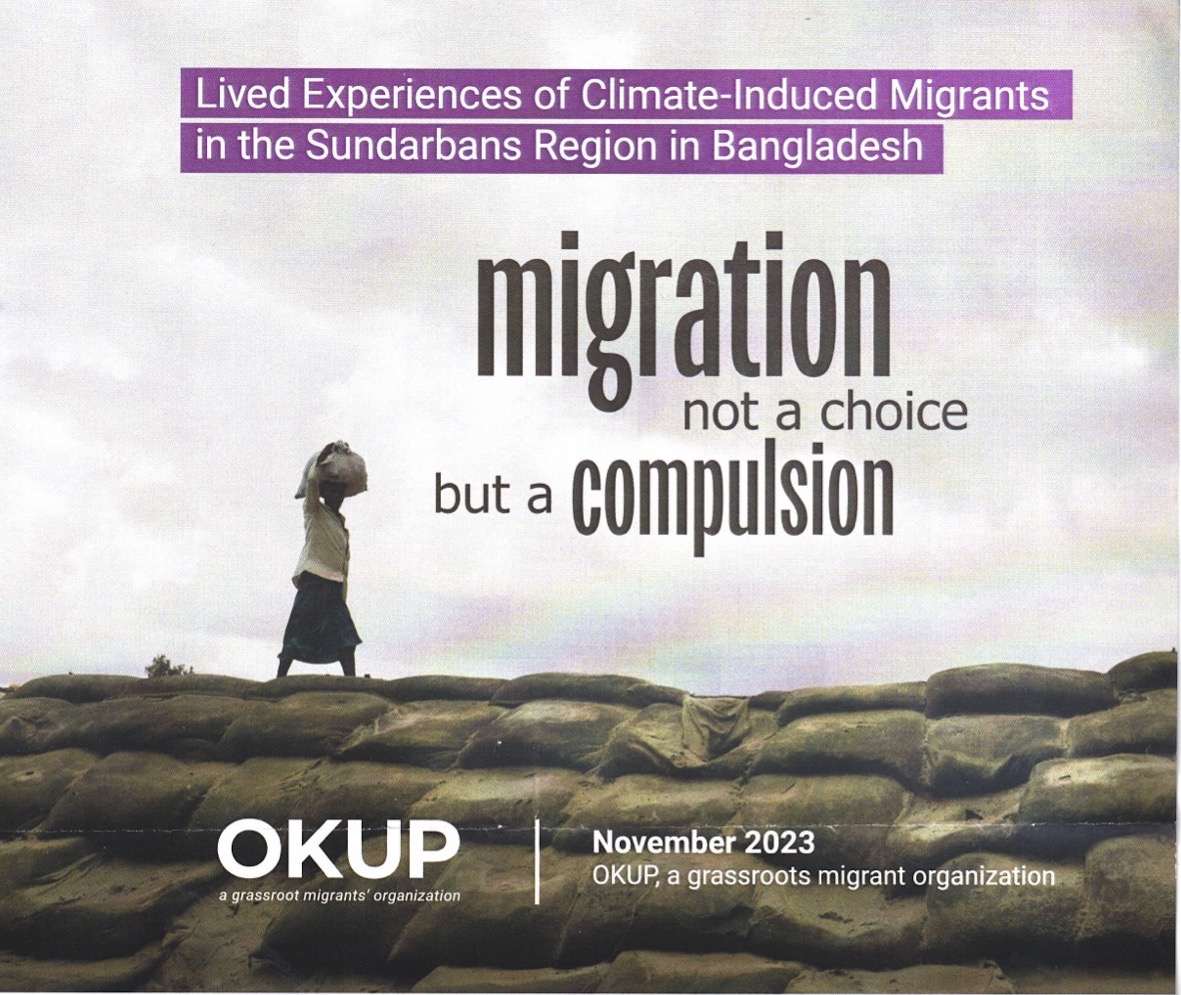
The country, the city and the autonomous region
In an economic frame, marginality means solidarity economy? But at the top level of WSF themes, this is a term that wasn’t deployed. There was a great deal about solidarity, a certain amount about economy, and a distinct focus on agriculture, subsistence (e.g. food sovereignty), land (as indigenous territory as well as a plane of subsistence) and regional autonomy. There was a focus on bioregion, which highlighted how hard it often it is to assemble the scientific basis for defining and approaching a bioregion, but how powerful bioregionalism can be as a counter to statist-nationalism.
A rich double session around peasant revolutions and regional sovereignty - both enacted (Rojava, Chiapas) and anticipated (China!) - was held under the rubric Radical democracy and autonomy. Politically these explorations are fascinating and significant. But I was left wondering: as distinct from a political or gender frame (solidarity, mutual learning, women’s leadership) has anybody pulled an economic frame on Rojava? Or the Zapatistas, for that matter? Is there a distinct regional practice of food sovereignty, for example? Tacitly, in that ‘radical democracy’ session, economics was more to the front in the presentation of peasant movements for rural autonomy in China, in relation to the massive movement of populations (enforced economic migrations) to massively capital-invested (and debt-compromised) cities.

A movement in India for grassroots alternative economies at regional level, involving more than 80 local movements and organisations, has been in existence for ten years or more: Vikalp Sangam. In Kathmandu a session was held that outlined VS principles and practice and invited others in South Asia to come into the process. Manifestly the VS formation is close kin to GEO. But there are differences in origins and highlighted themes, as well as methods (ie the sangam or confluence as a basic method). Post-development is one theme that has prominence in the South, in a way that it doesn’t in the North. The standard translation of Vikalp Sangam is ‘development confluence’ but the term used is in fact ‘alternatives confluence’, signifying the post-development politics of the movement. The ‘alternatives framework’ is on paper here.
Alternatives’ refers to ways of meeting human needs and aspirations, without trashing the earth and without leaving half of humanity behind. These refer to grassroot initiatives for basic needs, processes of direct political and economic democracy, struggles for justice and equality, policies, technologies and concepts/frameworks that challenge structures of oppression, inequality and unsustainability. They could be initiated and implemented by communities, government, civil society organisations and individuals amongst others.1
Miserable labour
In the global North we typically involve ourselves in economic matters that in a sense are discretionary: alternative food supply, alternative housing, alternative means of exchange, coops as alternatives. In Kathmandu I couldn’t escape the issues that arise from the misery of labour: forms of slavery (for example indentured or bonded labour, specifically of women) and the mandatory nature of migration (to Arab countries for example, from South Asia; or to Chinese mega cities, from the countryside), in efforts to merely ensure the survival of families. Misery of labour is deeply embedded in some South Asian cultures through caste (with Dalits as the lowest, untouchable caste). An assembly of the Nepalese Dalit Parliament was especially impressive, with many delegates around the events in Bhrikuti Mandap wearing the blue cap of the Dalit Parliament movement. The banner in the parliament session announced: “Another Nepal without untouchability and caste based discrimination is possible. Let us build it”. Not catchy, but deeply moving. And a force to reckon with in building an alternative economy. (img) (img) (img)
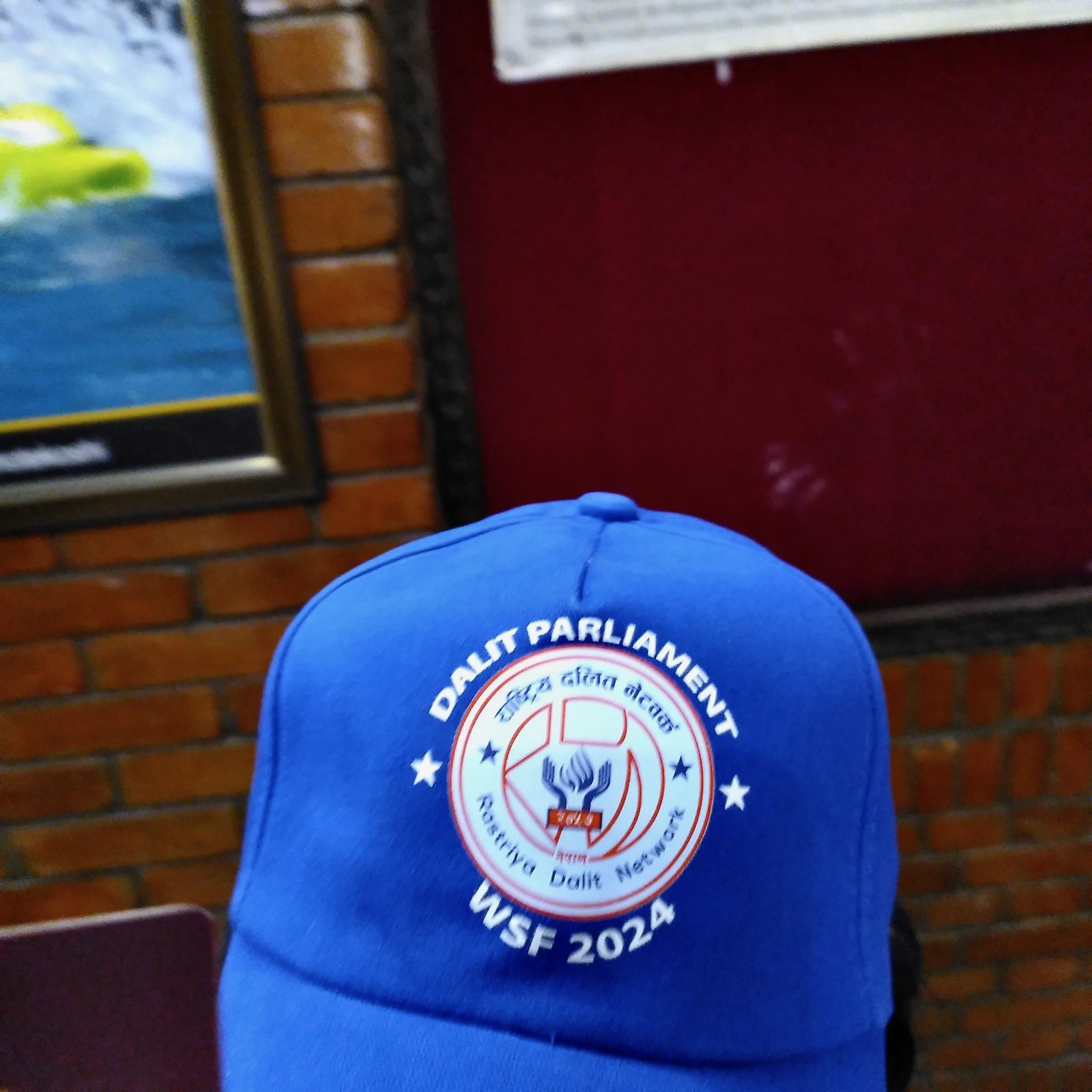
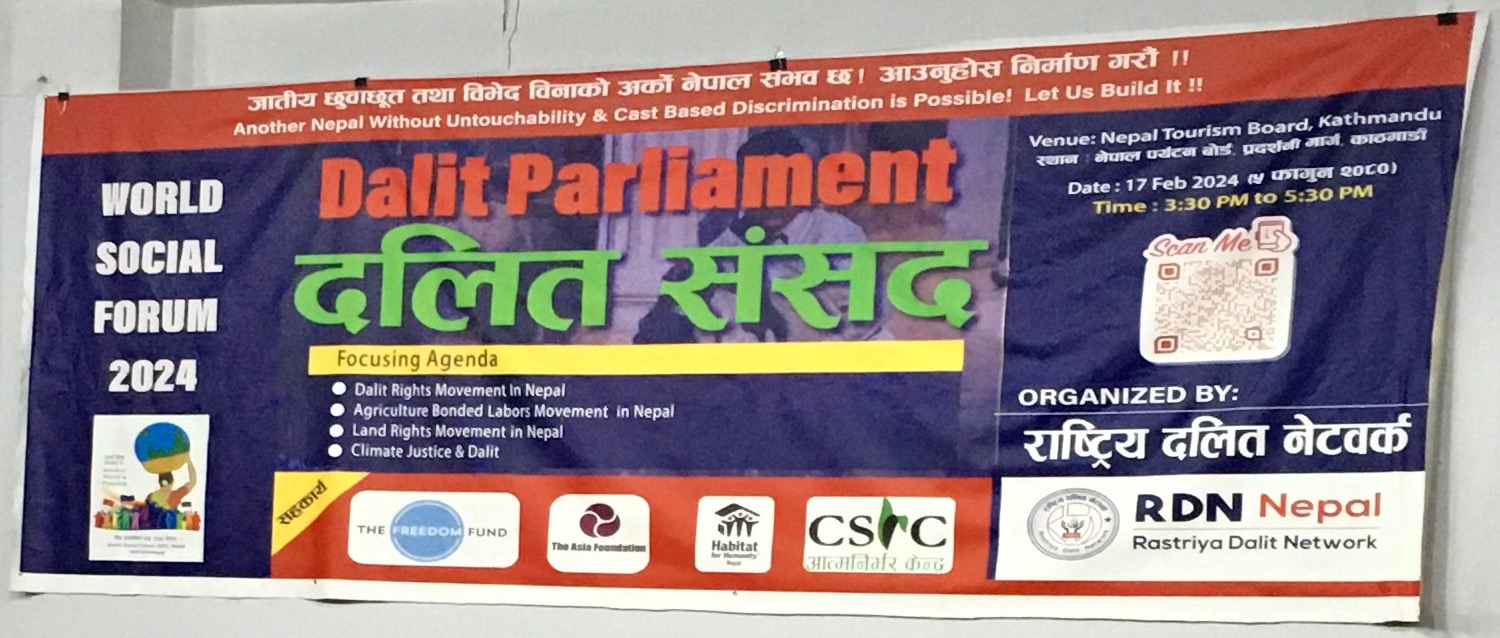
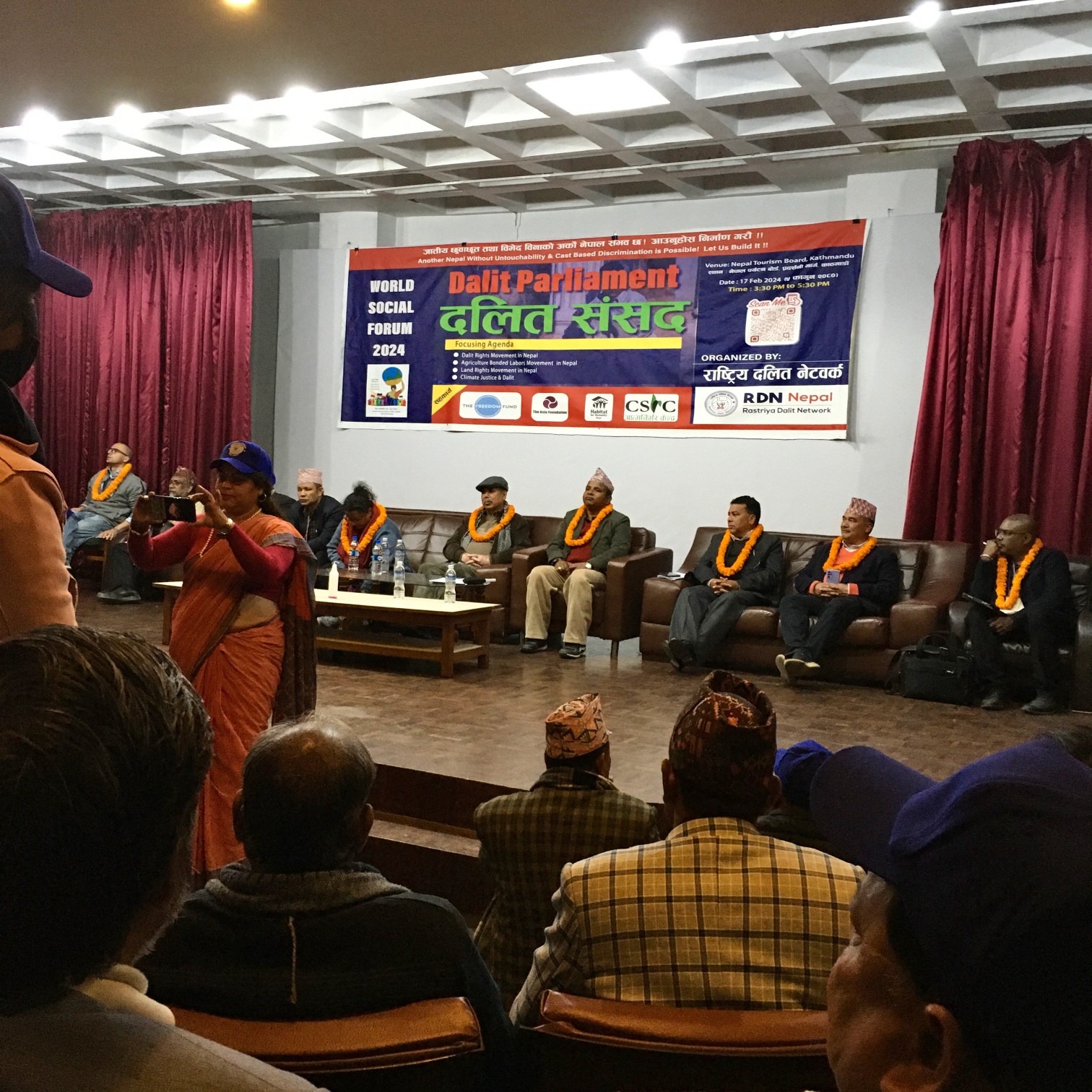
A Nepalese session participant described Nepal as being in a post-revolutionary situation. Following a decade-long ‘people’s war’, Maoists have been sharing government office with Congress Party since 1996.
Both the Dalit Parliament and a gathering that preceded it, of the South Asian federation of trade unions, felt distinctly old-school - formal chairing, honorific titles, formal delegations: a style of gathering I’ve not been in myself for years, since trade union meetings in the 70s, at the height of the European shop stewards’ movement. And the sentiments sometimes seemed old-school too, including one delegate who welcomed technological innovation on the grounds that this increases productivity and thus (tacitly) makes socialist revolution finally possible. This could have been Soviet Russia in the first quarter of the 20th century, or the Long March in China and the early years of Maoist strategy (or even, China today, sad to say)! This view, that development in the forces of production (productivity and efficiency) must lead alteration in the relations of production (class struggle) is an old old argument, still sadly ongoing. But it was a jolt, to find it alive and well in the midst of so much wilfully voluntaristic struggle at WSF2024 (more of it, arguably, around identity than economy or class?).
Transformative economies
In Barcelona in 2020 a move was made to develop a more persistent focus on economic transformation: We find this description:
The World Social Forum of Transformative Economies is a process of confluence of the different movements of alternative economies that exist in different parts of the world, both locally and internationally, which we call transforming economies. It is promoted by RIPESS (Intercontinental Network for the Promotion of Social Solidarity Economy), REAS (Spanish Network of Alternative and Solidarity Economy Networks) and XES (Catalan Solidarity Economy Network). Although the impulse is given from networks of the Social Solidarity Economy (SSE), the objective is that other movements join together to make a broader call. The proposal is to structure it with 4 axes of confluence that would also work in confluence: Feminist Economies and with a gender perspective; Agroecological Movement and Food Sovereignty; natural, urban and digital Commons; and The Social and Solidarity Economy, including fair trade, cooperativism and ethical finance.2
But the covid pandemic intervened and, for this and possibly other reasons, that initiative failed to sustain beyond the Barcelona confluence. Now a confluence in Colombia is planned in October this year, to reinvigorate this initiative.
WSF2024 included a session related to this planned Colombia confluence, but it was thinly attended. And right now, sadly, I can’t find any web presence for this upcoming event: the development processes seem to be via zoom calls, under limited circulation. Let’s hope it gets up steam, and public presence, pretty soon.
Making the conjunction at WSFTE2024 in Colombia - the practical conjunction of activist formations, practices and actions - will not be easy, between the misery of labour noted above, the aspirations of regional autonomy also noted above, and the geopolitical realities of war and authoritarianism, as highlighted by the organisers of the transformative economies session in Kathmandu:
Given the economy of war and dispossession that we live in the countries of the South, the visibility and defense of alternatives to the logic of the market is necessary. We are seeing how the ultra-right and authoritarianism take over the decaying institutions, while we create international networks of solidarity and emancipation.
Citations
Mike Hales (2024). Report from the World Social Forum 2024, Kathmandu. Grassroots Economic Organizing (GEO). https://geo.coop/articles/report-world-social-forum-2024-kathmandu

Comments
Paul Krumm
June 8, 2024, 5:38 pm
As to economics in Rojava, I once suggested that they institute a mutual money system. The response was that they would be carpet bombed the next day by Turkey if they did that.
PS: my web site is inactive. I just put it in to get this to send.
Add new comment